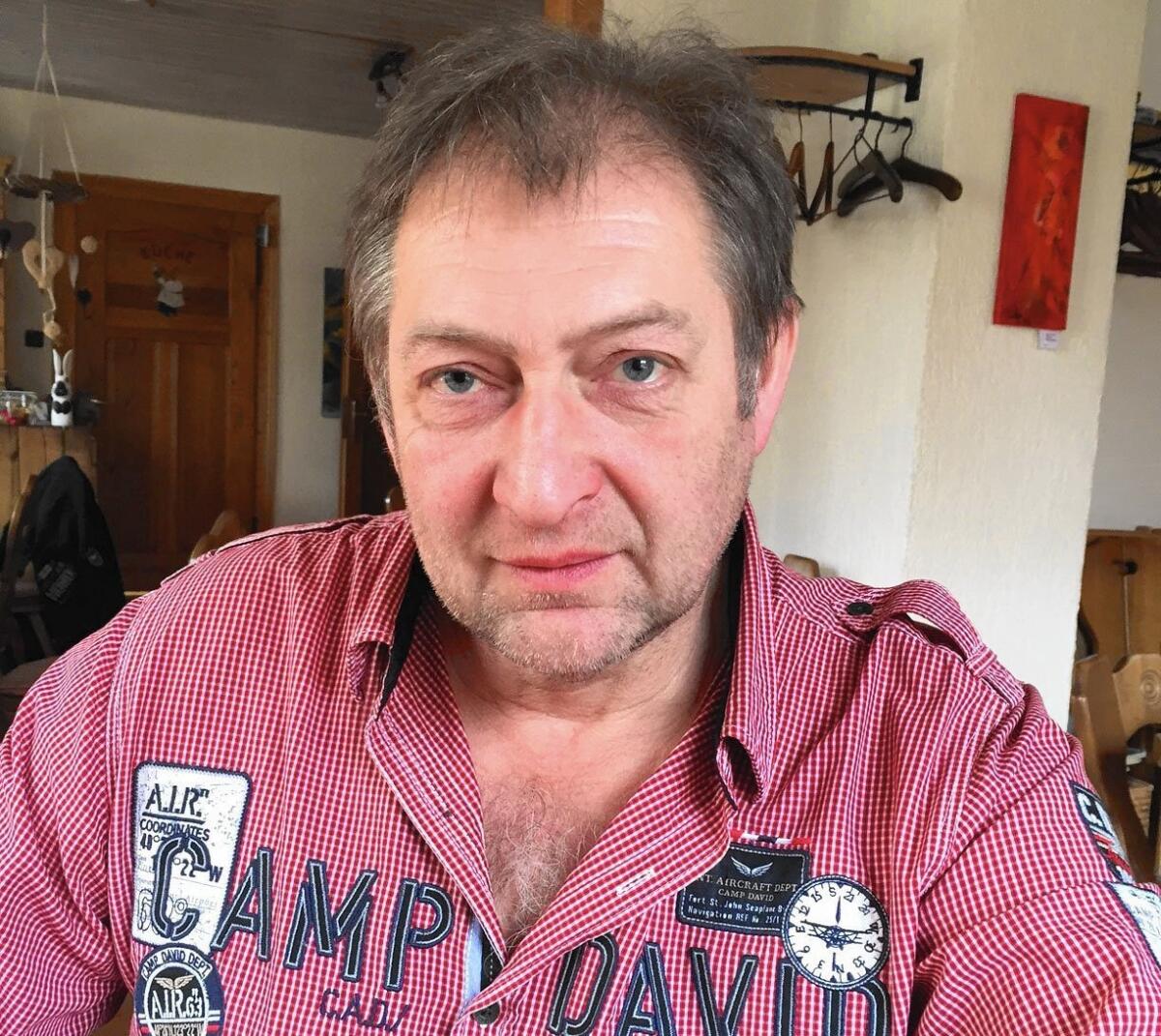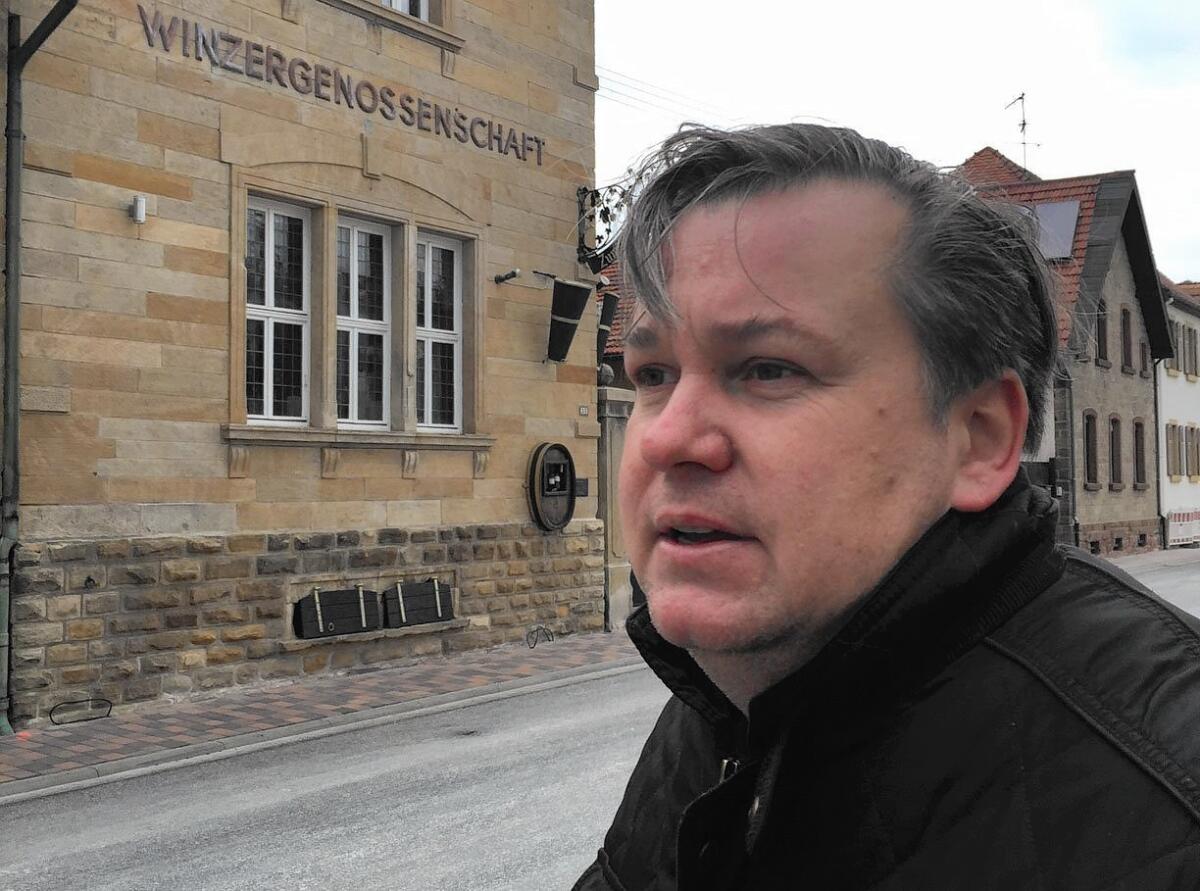What do residents of Trump’s ancestral village in Germany think of him? Not so nice

- Share via
reporting from KALLSTADT, Germany — This is not, at first glance, a very Trump-like place.
A tidy village in Germany’s wine country, Kallstadt is home to modest people, modest houses and an open, welcoming attitude toward outsiders — immigrants, tourists and oenophiles alike.
It is also home to people who claim an ancestral relationship to Donald Trump, who can trace his roots to a Kallstadt family once known as the Drumpfs. And that connection is making the people of Kallstadt a little uneasy.
“At first we used to just laugh about Trump running for president, but it’s not funny anymore,” said Bernd Weisenborn, a 54-year-old winegrower whose immaculately clean vineyard lies just across the street from the house where Trump’s grandfather Friedrich grew up. “It’s actually becoming embarrassing; the things that Trump has been saying are just out of line.”
Weisenborn, a friendly man with a hearty laugh, said he is a distant cousin of the Republican presidential front-runner — his great-grandfather was the brother of Trump’s grandmother. He described Kallstadt residents as generally open-minded, tolerant and welcoming, and said many find Trump’s policy statements and outbursts of vulgarity difficult to digest.
At first we used to just laugh about Trump running for president, but it’s not funny anymore.
— Bernd Weisenborn, 54
“We’re of two minds about Trump,” he said. “On the one hand, it’s great to see someone with Kallstadt roots become such a business tycoon in America. It’s the American dream. But on the other hand, it’s hard to be proud of anyone who makes such statements against Muslims, immigrants and women.”
Weisenborn said many people in Kallstadt, dozens of whom claim family relationships to Trump, are baffled and appalled that the grandson of immigrants to the United States could be so virulently anti-immigrant.
“Everyone America ever elected as president descended from immigrants,” he said.
German Americans were once the largest and, by some measures, most influential minority group in the United States. There are about 50 million Americans today with German roots.
According to one Donald Trump biography and other published accounts, the Trump family was originally known as Drumpf but changed the name at some point — accounts vary about when. Trump’s paternal grandfather, Friedrich, left Kallstadt for America in 1885 at age 16, joining millions of Germans who sailed across the Atlantic to seek their fortune in the New World.
Friedrich returned to Kallstadt in 1901 and a year later married a local girl, Elizabeth Christ, who lived across the street from his family’s home — a modest but sturdy-looking house still standing today.
According to “Donald Trump: The Candidate,” a biography by Gwenda Blair, Friedrich and Elizabeth moved to the United States and then back to Kallstadt. But their return to Germany was short-lived: Friedrich was expelled for evading Germany’s compulsory military service, and the couple sailed to New York to stay. Donald’s father, Fred, was born a short time later.
Donald Trump, who has never been to Kallstadt, was born in 1946. In his autobiography, “The Art of the Deal,” he wrote that his father’s family came from Sweden — apparently the story told by Fred Trump. It was not uncommon for German Americans to hide their roots in response to anti-German sentiment during World War I.
But in a 2014 documentary called “Kings of Kallstadt” about Trump and John Henry Heinz, whose son started a ketchup empire in the United States, Trump said he was proud of his German roots.
“They’re strong people and they’re smart people,” Trump tells Simone Wendel, a native of Kallstadt, in her film. “They grow them well in Kallstadt. They get things done. That’s the German culture. I’m proud to have that German blood. Great stuff.”
Wendel said she found Trump to be friendly and surprisingly interested in his German roots but acknowledged that his image in her hometown had taken a beating. “The people in Kallstadt see Trump as someone who is just too loud and aggressive,” she said.
It might not help, in this wine-drenched town, that Trump is a well-known teetotaler.

There are no Trumps left in Kallstadt, although there are at least six Trump gravestones in the small cemetery on the northern edge of town. The town is a low-key tourist center about 25 miles east of the U.S. air base at Ramstein. There are bed-and-breakfasts on nearly every street, along with wine bars serving the local dry Riesling.
In a country with a deep aversion to building walls (which recall the walls dividing the country during the Cold War) or making aggressive statements toward other countries (which recall the Nazi past), many townspeople expressed anxiety in interviews about Trump’s campaign.
“Trump is just horrible,” said Tanja Bayer, a 46-year-old office worker. “It’s hard to believe that so many Americans are really voting for him. We thought at first it was just a good joke. But it’s unbelievable how far he’s got with this.”
Other residents said they feared a Trump presidency would make the United States a less reliable partner at a time when many Germans say they want the U.S. to remain a bastion of stability in a peril-filled world. A recent poll found that 83% of Germans had a negative opinion of Trump and that 79% said it would be bad for Germany if he became president.
In part because of their history, Germans prefer cautious, even dull, leaders who weigh their words carefully. The same poll found that a large majority of Germans would prefer to see Democrat Hillary Clinton — widely viewed here as a steady hand — as the next president.
“Trump is just too radical to become president,” said Gabi Riede, 54, as she worked in the town’s main bakery, where the radio and TV airwaves were filled with news of Trump’s latest primary wins. “It doesn’t matter if his grandparents came from Kallstadt or not. He’s just too extreme.”
Stephan Sollboehmer, who runs a wine bar just up the street from Trump’s ancestral home, said the tycoon is an impressive businessman who has made the most of his opportunities in America.
“But it would be a terrible thing if he ends up as president,” said Sollboehmer, 45. “He’s an embarrassment. Kallstadt is a wonderful little wine town as it is, and we definitely don’t need Trump as president to get in the way of that.”
Kirschbaum is a special correspondent.
------------
FOR THE RECORD
March 21, 3:48 p.m.: An earlier version of this article misidentified Simone Wendel as Simone Wendler.
------------
ALSO
Greeks share what little they have with refugees and migrants
Salah Abdeslam backed out of being Paris suicide bomber, prosecutor says
New generation of more radical youth emerges in the Kurdish region of Turkey
More to Read
Sign up for Essential California
The most important California stories and recommendations in your inbox every morning.
You may occasionally receive promotional content from the Los Angeles Times.










